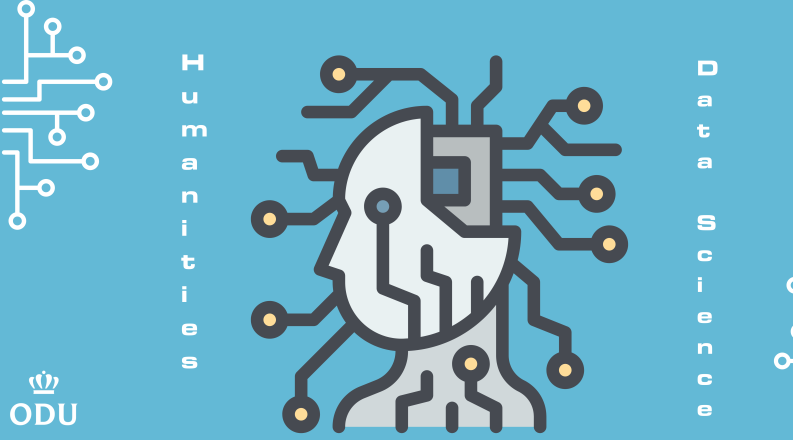



A $150,000 National Endowment for the Humanities grant will help Old Dominion University students explore the deepening relationship between the humanities — English, philosophy, religion, world languages — and data science.
“This is definitely a growing area,” said Teresa Kouri Kissel, associate professor of philosophy, who applied for the grant in conjunction with Interim Dean for Interdisciplinary Schools Holly Handley and Interim Provost and Vice President for Academic Affairs Brian Payne.
Kouri Kissel sees more philosophy majors being hired in jobs related to data. “I think 50 percent of the jobs have a data-driven component,” she said.
This grant will allow more students to be exposed to data science, Handley wrote.
“The new undergraduate minor provides all students across campus the ability to augment their studies with content knowledge about data science, while the new undergraduate major allows our data science students to choose a concentration that expands critical thinking and communication skills,” Handley wrote.
The NEH grant money supports the ODU project called “Developing Humanities-Focused Curricula in Data Science.” It is described as a three-year effort to create a humanities concentration within the university’s data science major and a minor in data science and humanities.
Kouri Kissel says today’s employers want workers with foundational skills — reading, writing, logic, analysis — in addition to technical ones. “The humanities are excellent at developing those foundational skills,” she said.
“To be able to get that development within your major or minor as opposed to just getting that through your electives … I think is going to be huge for our students on the job market. It just makes them that much more marketable.”
Handley also said the grant will help ODU continue to distinguish itself as a leader in the undergraduate education of data science.
Kouri Kissel agreed.
“In doing research for this, one of the things we realized is that no one has a degree or concentration that focuses on the intersection between these two fields,” Kouri Kissel said. “So, we are hoping to pave the way.”
Resources compiled to build the concentration and the minor will be shared publicly, she said. “People can look to us when they think about these things in the future.”
ODU’s grant is one of several hundred projects supported by the NEH in a round of funding announced April 16.
“These projects show how the humanities help us understand ourselves and our world,” said NEH Chair Shelly C. Lowe (Navajo) in a news release. “NEH is proud to support 238 exemplary new education, preservation, research, and public programs that will expand our nation’s cultural resources and foster learning in communities across the country.”
If all goes as planned, classes in ODU’s new curricula will be offered in Fall 2026 or sooner.
This isn’t Kouri Kissel’s first NEH experience. In 2022, she won a $60,000 fellowship from the organization to research the writings of Susan Stebbing, a 20th century British philosopher and logician.
Her husband, Andrew Kissel, also a philosophy professor at ODU, won NEH funding in 2020 for a project titled, “Philosophical Thought Experiments in Virtual Reality.”
“So, they are fans of the Kissels,” she said, “which I can’t complain about.”
Top image:A new project supported by the National Endowment for the Humanities will help students understand intersections of data science and the humanities. Credit: Canva/Sam McDonald